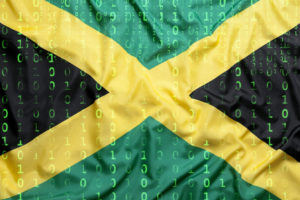TRADE CONTINUITY A REALITY
The world’s gaze remains firmly fixed over the unfolding of the Brexit saga and the recent two-week extension granted in Brussels. Any exit without a deal has been described as being “catastrophic” and one which will send the UK over a “sharp cliff edge” that will lead to an abyss of economic downfall, not just for UK, but also for its trading partners.
With the focus on the doom and gloom and the chaos in the House of Commons in the foreground, little publicity has been given to the monumental behind-the-scene efforts by the various government Departments preparing for a no-deal Brexit. In particular, the Department of International Trade (DIT) has ensured that the UK signs continuity bilateral trade agreements to ensure trade continues with minimal disruption after the UK leaves the EU.
All the countries with which either trade agreements have been signed or mutual recognition agreements have been signed, can be found here.
Senator Kamina Johnson-Smith, Minister of Foreign Affairs and Foreign Trade confirmed that Jamaica and eight other countries in the region, signed an agreement to preserve existing preferential trade terms with the United Kingdom in a Post-Brexit era. The other countries which signed were: Barbados, Belize, Dominica, Grenada, Guyana, St Kitts-Nevis, St Lucia, and St Vincent and the Grenadines.
Continuity and certainty are key to the Jamaican business community given that the UK is our largest trading partner within the EU. By way of example, statistics reveal that 64% Jamaican sugar cane exports went to the UK.
The Agreement safeguards the uninterrupted continuation of trade between our region and the UK. It covers trade in goods, trade in services and trade-related issues such as Intellectual Property Rights.

WHAT THIS MEANS FOR JAMAICAN BUSINESSES
The agreement will allow Jamaican businesses and many others across the Caribbean to trade like they do now, without any additional barriers or tariffs.
It eliminates all tariffs on all goods imported from the signing CARIFORUM States into the UK, while those Caribbean states will continue gradually to cut import tariffs on most of the region’s imports from the UK.
The preferential terms are part of the UK government’s commitment to supporting developing countries to reduce poverty through trade. Used wisely they should help to grow local economies, create jobs, increase incomes and reduce reliance on overseas aid in the long-term.
In 2017 total trade between the UK and the region was worth around £2.5 billion. Based on current trade flows, exporters of bananas and other fruits and nuts could save over £14 million a year in tariff charges that could apply if the Agreement wasn’t in place, while exporters of sugarcane and other sugar products could save more than £20 million.
UK’s Minister for Trade Policy confirmed that the Agreement will help to support jobs in the UK and throughout the Caribbean, as well as ensuring that the British supermarkets shelves continue to be stocked with the best Caribbean produce such as bananas, sugar and rum.
WITH TRADE COMES TOURISM
The Agreement also covers the services sector, including tourism, which will benefit Brits who spend £900 million a year during some 900,000 visits to the Caribbean.
It will help small and medium businesses in the Caribbean to promote sustainable tourism and follow international environmental and quality standards. In the same vein, large hospitality and the real estate sectors will also see knock-on advantages.




